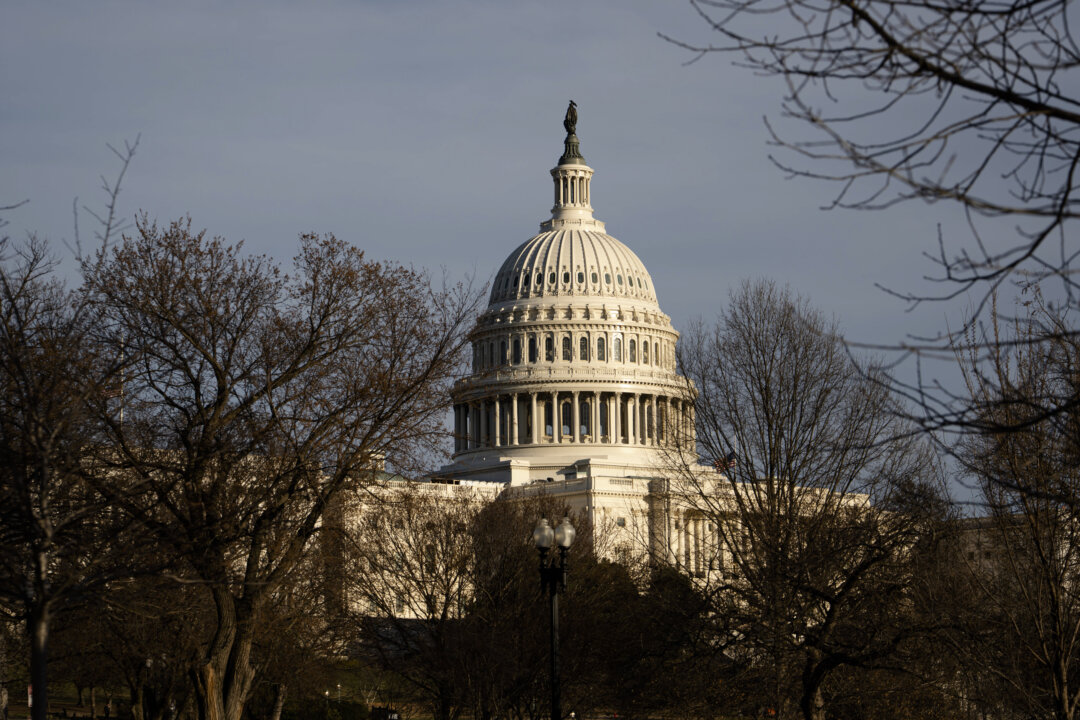
The stopgap funding bill now heads to the president’s desk for signature. Earlier on Friday, 10 Democrats joined Republicans to advance the measure.
WASHINGTON—The U.S. Senate on March 14 approved a House-passed bill to extend government funding by six months, hours before a shutdown deadline.
After days of speculation about its ultimate fate in the upper chamber, the Senate agreed to final passage of the bill in a 54–46 vote on Friday evening. The legislation now heads to the desk of President Donald Trump, who’s expected to sign it.
Though a handful of Democrats voted to advance the bill earlier the same day, only Sens. Jeanne Shaheen (D-N.H.) and Angus King (I-Vt.) supported final passage. Sen. Rand Paul (R-Ky.) was the only Republican to oppose the package, citing budget concerns.
It increases defense spending by about $6 billion while cutting non-defense spending by $13 billion compared to last year’s levels. Overall, the measure reduces spending by about $7 billion from the previous year.
Four proposed amendments to the package—including one to reduce its duration to 30 days and another from Paul to implement certain recommendations made by the Department of Government Efficiency (DOGE)—were defeated ahead of the bill’s final passage in the Senate.
In an earlier procedural vote, 11 Democrats joined Republicans to advance the measure: Senate Minority Leader Chuck Schumer (D-N.Y.), Senate Minority Whip Dick Durbin (D-Ill.), Sens. Catherine Cortez-Masto (D-N.Y.), Dick Durbin (D-Ill.), Brian Schatz (D-Hawaii), Gary Peters (D-Mich), Maggie Hassan (D-N.H.), Kirsten Gillibrand (D-N.Y.), John Fetterman (D-Pa.), Shaheen, and King.
Trump congratulated Schumer for “doing the right thing,” adding that the latter’s final decision took “’guts’ and courage.”
The Senate also passed by a voice vote a bipartisan bill related to funding for Washington that reverses an approximately $1.1 billion cut to the city’s budget included in the stopgap spending bill.
For Democrats, the fight over the bill could have implications stretching beyond the current dispute—particularly for Schumer, who is facing criticisms from the progressive base and some House Democrats.
Schumer Defends Reversal
When Schumer announced his decision to back the legislation on Thursday, the Senate minority leader made clear that he perceived this course as the best available to Democrats.
“The [stopgap] is a bad bill,” Schumer said minutes ahead of the cloture vote on March 14, reiterating his earlier comments. “But as bad as [it] is, I believe that allowing Donald Trump to take more power is worse.”
Rather than framing his support as a vote for the spending bill, Schumer framed it as a vote against a shutdown, saying on March 13, “I will vote to keep the government open and not shut down the government.”
He said that Republicans were presenting Democrats with a “Hobson’s choice,” a choice that appears to offer two alternatives but offers only one realistic option.
Schumer said that a shutdown would enable Trump and Elon Musk to unilaterally implement many of the personnel and funding cuts proposed by the Department of Government Efficiency (DOGE). This would be a result of the heightened authorities the president has during a shutdown to determine which employees and services are essential, Schumer said.
The Musk-led DOGE was ordered by Trump to audit federal agencies to reduce government spending.
Following Schumer’s reversal, Sen. Catherine Cortez-Masto (D-Nev.) also came out in favor of invoking cloture, saying in a statement, “A government shutdown would be devastating for the American people.”
Like Schumer, she tied her backing to concerns that a shutdown would expand Trump’s authority.
Sen. Tim Kaine (D-Va.), who voted against the package, defended his colleagues who joined Schumer.
“It was a very hard call, and I understand, everybody has a very solid reason for their vote,” Kaine told reporters following the initial procedural vote.
Fetterman was more forceful in his defense of Schumer’s decision.
“The right thing sometimes isn’t the popular one,” Fetterman told The Epoch Times when asked if he had any concerns about Schumer’s leadership. “I’m not going to pander to the far left.”
Criticisms From House Democrats
Schumer’s decision to change course on the funding plan prompted criticism from the party’s left flank and House Democrats.
Top-ranking Democrats like House Minority Leader Hakeem Jeffries (D-N.Y.) and Speaker Emerita Nancy Pelosi (D-Calif.) have been hesitant to rubber-stamp the move.
During a press conference on Friday, Jeffries dismissed questions about whether he has confidence in Schumer.
Pelosi also rejected Schumer’s plan in favor of an alternative 30-day funding bill put forward by House Appropriations Committee Ranking Member Rosa DeLauro (D-Conn.) and Sen. Patty Murray (D-Wash.).
“Democratic senators should listen to the women,” Pelosi said in a Friday statement, saying that DeLauro and Murray “have eloquently presented the case that we must … keep government open and negotiate a bipartisan agreement.”
“We must fight back for a better way. Listen to the women, For The People,” she added.
“We urge all Senate Democrats to stand with House Democrats and with the American people, reject this [funding bill], and force House and Senate Republicans back to the negotiating table,” the letter read.
Rep. Alexandria Ocasio-Cortez (D-N.Y.), a progressive Democrat seen as a potential Senate contender one day, has criticized her state’s senior senator.
She called the move “a huge slap in the face,” describing “a wide sense of betrayal” within the party.
Original News Source Link – Epoch Times
Running For Office? Conservative Campaign Consulting – Election Day Strategies!
